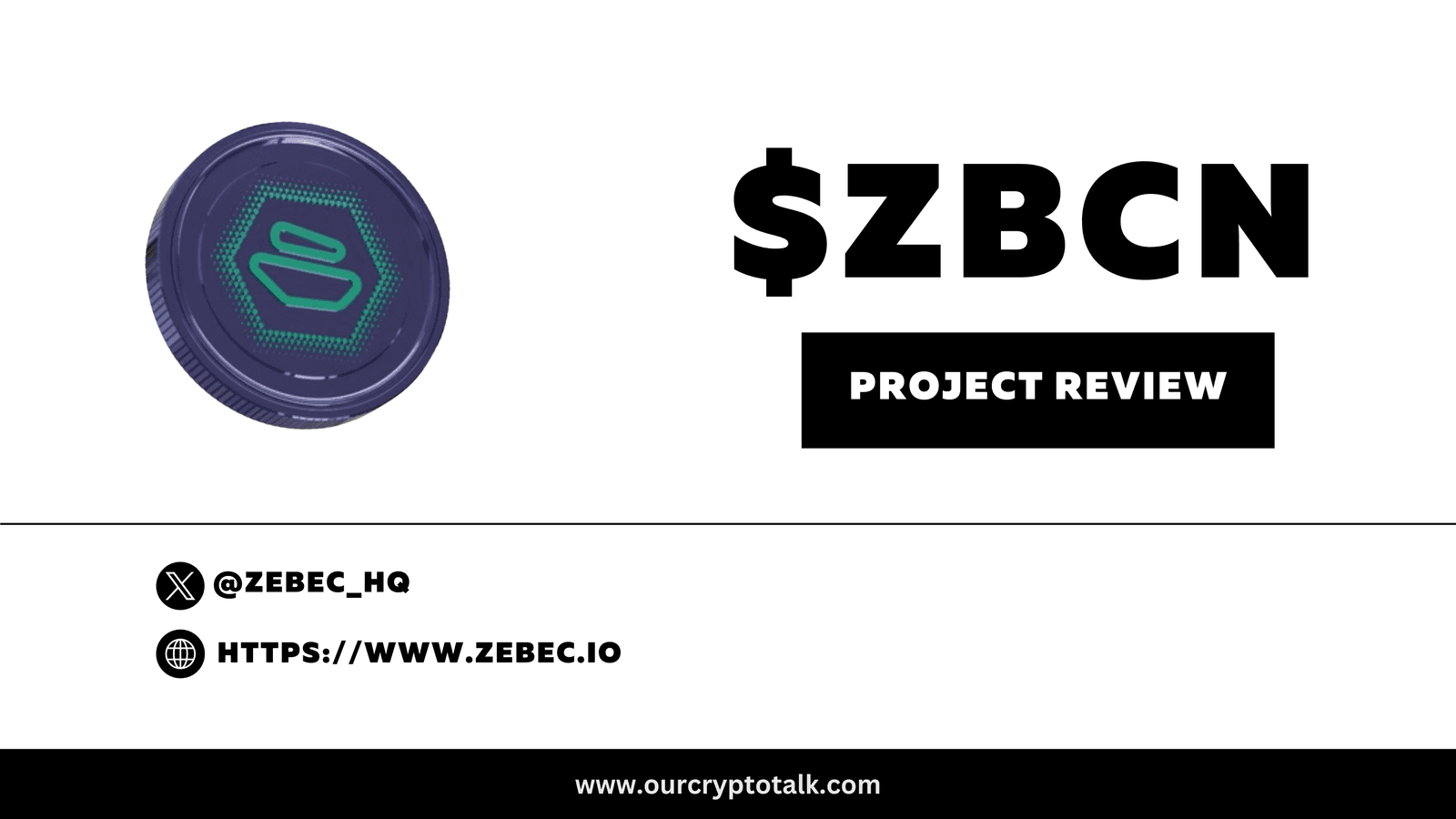
Zebec Network crypto review – Explore how Zebec enables real-time payroll, cards, and DePIN payments with Solana and ZBCN token.
Author: Akshat Thakur
Zebec Network is a decentralized payment and infrastructure network that brings real-world value flows onto the blockchain. Founded in 2021 and backed by $35M from top-tier investors such as Coinbase, Circle, and Solana Ventures, Zebec aims to transform how individuals and businesses handle payroll, payments, and financial operations using a real-time, crypto-powered system.
With a suite of tools including Zebec Pay, Zebec Cards, treasury management systems, and ZePIN (Decentralized Physical Infrastructure Network), Zebec leverages the speed and scalability of the Solana blockchain to power fast, secure, and low-cost transactions. As the world moves toward real-world asset (RWA) tokenization and blockchain-powered payroll, Zebec emerges as one of the most promising players in Web3 finance.

ZBCN is the native utility and governance token powering Zebec’s expanding ecosystem. Initially launched as ZBC, the updated token model reflects the platform’s multi-chain evolution and growing suite of products.

Zebec stands out by bridging the blockchain and traditional finance worlds through functional, real-world tools. It offers solutions beyond DeFi hype—bringing payroll, cards, and treasury tools to institutions and individuals. Its emphasis on real-time operations, AI compliance, and physical payment hardware gives it a unique edge.
Zebec’s multi-chain approach, particularly its speed on Solana and compatibility with Ethereum and BNB Chain, enhances accessibility. The platform’s focus on compliance and real-world integration also helps it appeal to both Web2 and Web3 businesses.
Compared to Request Network and Superfluid, Zebec offers more comprehensive services, with real-time streaming, licensed U.S. payroll operations, and actual DePIN hardware—features that most competitors currently lack. However, broader adoption depends on UX improvements and regulatory developments.


Zebec Network is not just another crypto payment solution—it’s a full-stack financial infrastructure platform built for mainstream adoption. With powerful integrations like real-time payroll, Mastercard-backed cards, DePIN hardware, and AI compliance monitoring, it caters to real-world use cases that most blockchain projects overlook.
In contrast to projects like Request Network or Superfluid, which focus solely on streaming payments or on-chain invoicing, Zebec delivers a unified experience that merges on-chain programmability with the usability of traditional finance. Its U.S.-compliant payroll offerings and hardware rollout for DePIN integration set it apart from pure-software competitors.
As the crypto industry shifts toward real-world assets, on-chain treasury, and regulatory compliance, Zebec’s value proposition becomes even more relevant. If execution continues at its current pace, Zebec could define the blueprint for blockchain-native fintech platforms.

Explore More Reviews to Level Up Your DYOR Game

